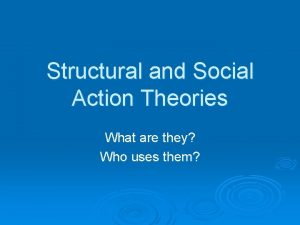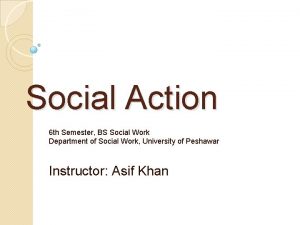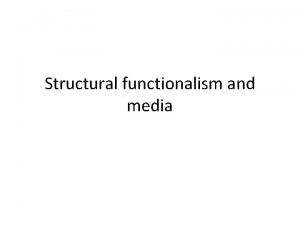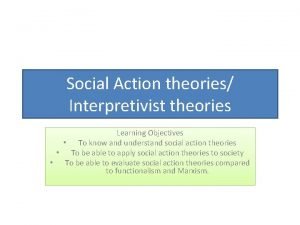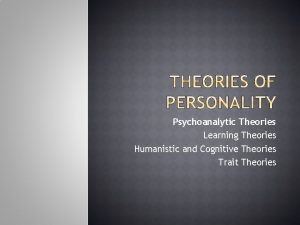Structural and Social Action Theories What are they






- Slides: 6

Structural and Social Action Theories What are they? Who uses them?

What’s the difference? Ø Structural perspectives and social action perspectives differ in the way they approach the analysis of society Ø One analyses the way in which society fits together or how society is structured as a whole. Human behaviour is largely determined by society Ø One sees society as being the product of human activity. Human behaviour is seen as critical in the development of society.

Examples of Structural Theories Despite being very different, Functionalism and Marxism examine society in terms of structure and use a model of how society works. Ø What are these models and how are they different? Ø

Examples of Social Action Theories Max Weber was the first sociologist to advocate a social action approach. Ø In contemporary sociology there are two main varieties of this type of sociology. Ø Symbolic interactionism and Ethnomethodology. Ø Describe the differences between these theories Ø

Choice over Determinism Ø Ø Ø Anthony Giddens 1978 -84 According to Giddens, humans are constantly intervening in the world by their actions and in doing so , they have the capacity to transform it. He rejects the view that human behaviour is entirely determined by outside forces He rejects the view that humans have complete free will His theory, structuration is a combination of these views.

Applying Giddens’ theory Paul Willis’ study “Learning to Labour” was praised by Giddens. Ø How can this study be applied to Structuration theory? Ø

